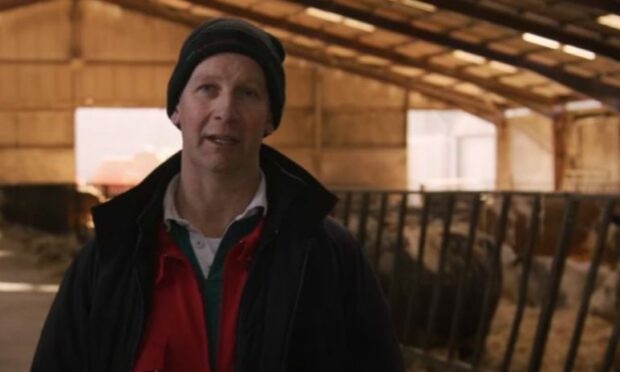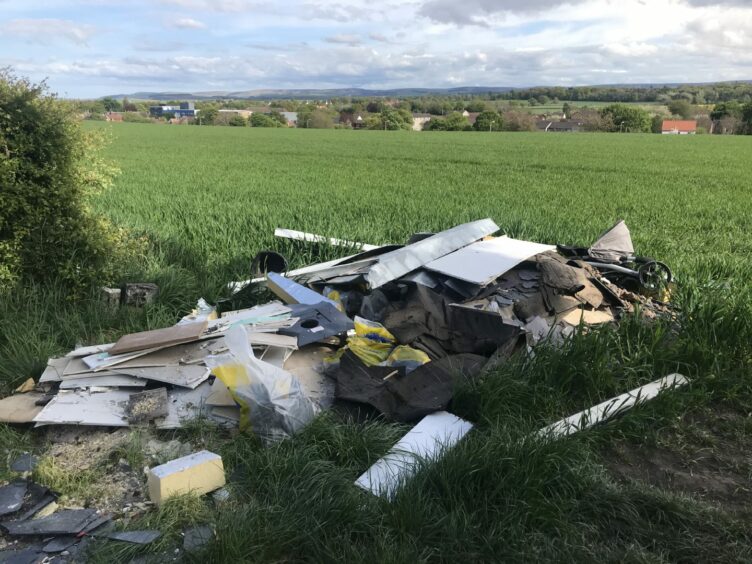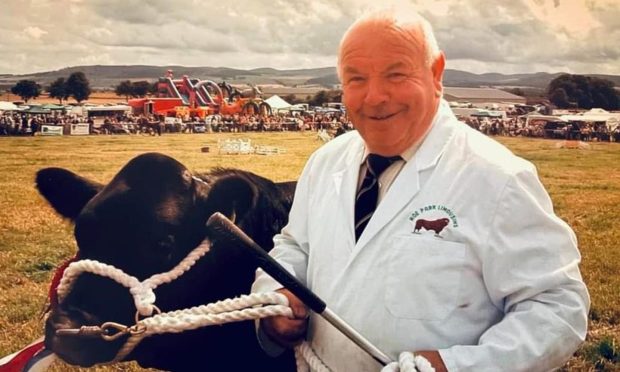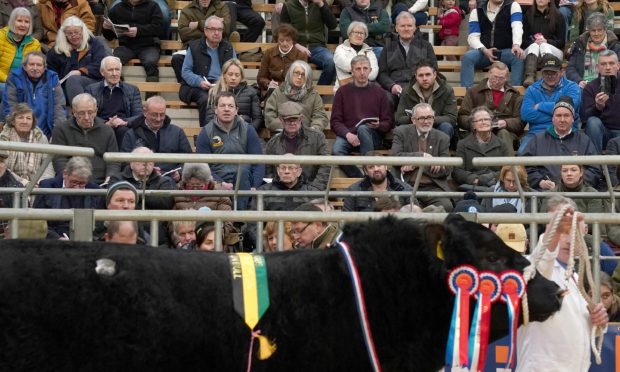Two Aberdeenshire farmers have described the horror of losing livestock to lead poisoning as a result of discarded or fly-tipped batteries.
The cases of Steve Barron and Grant Jolly have been highlighted by Food Standards Scotland (FSS) in a campaign which urges producers to be on their guard for discarded car or electric fence batteries this spring when young livestock are turned out into fields for the first time.
In a video released by FSS, Mr Barron said he went through “excruciating pain” when animals died after car batteries were dumped at the edge of a field, leaving eight calves with no mothers.
“It took us to the lowest point ever on the farm,” he added.
In a separate incident, Newmacher farmer Grant Jolly described how three of his cattle became ill last summer, and after one of the cattle died, a sweep of the farm found an old battery which was thought to be the likely source.
Mr Jolly said: “Losing one of my cattle in such a way has been a nightmare and resulted in significant financial costs.
“The battery that was found was very old and only a small part was sticking out from the ground.
“Luckily I found it.”
Vet Graham Fowlie, based at Meadows Vets, Oldmeldrum, says cases of lead poisoning happen “almost always” at spring turnout when young cattle are sent out, and for the infected animal and the farmer, it is a distressing experience.
“Rapid onset blindness means the cattle end up drowning in ditches
and get stuck in fences,” he said.
“Once the animals show symptoms, death often follows quickly. It’s fairly traumatic stuff.”
The poisoning can also have a knock-on effect on the food chain, contaminating meat,
offal and milk which becomes unsafe and illegal to sell.

FSS Head of Incidents Stuart McAdam, said: “We know farmers are very serious about the health and welfare of the animals in their care, however, because incidents of lead poisoning often peaks in spring when cattle is put out to pasture, we’re re-launching our on-farm incident prevention campaign.
“Lead batteries, old paint, bonfire ash and fly-tipping are the primary causes of lead poisonings.
“Prevention is the best strategy and checking field regularly and removing animals’ access to these sources are the first steps to preventing these incidents.”











